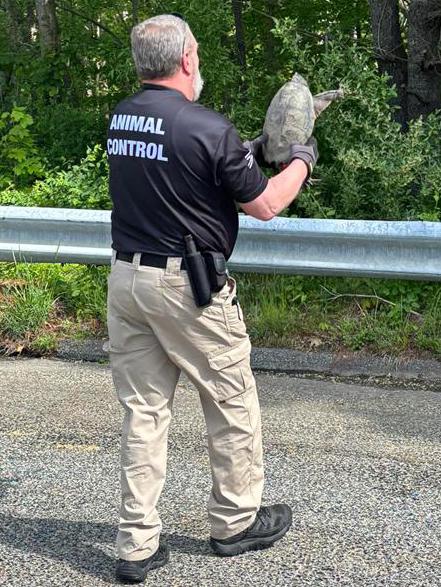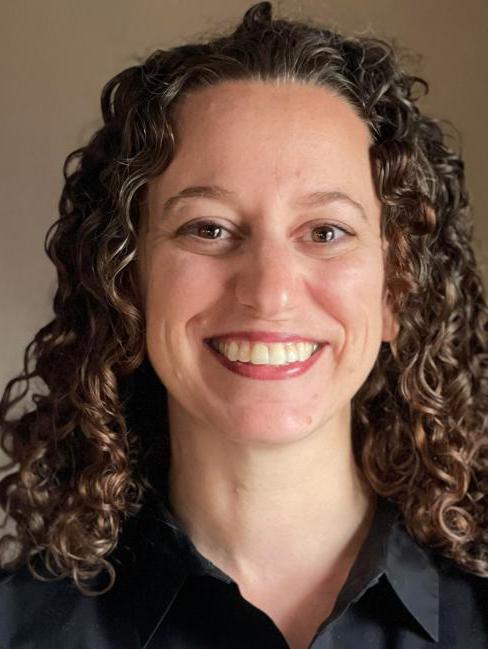WARWICK, R.I. — A new Family Court judge plans to hold a trial in September to decide whether the grandparents of a toddler have the right to visit her over the objections of her father.
Judge Felix Gill will also decide whether to hold the father, Scott Naso of Portsmouth, R.I., in contempt for not following another judge’s order from last September allowing his late wife’s parents to have supervised visits with their granddaughter.
The visits were paused in February during an investigation by the state Department of Children, Youth, and Families. The father has refused to resume.
“The visits are not in her best interests,’’ said Naso. “She’s my daughter, and I’m protecting her.’’
Naso has been trying to prevent his in-laws, East Greenwich residents Dr. Siavash Ghoreishi and Dr. Jila Khorsand, from visiting with his daughter, Laila, saying he is concerned for her safety.
He believes that his in-laws’ medical care contributed to his wife’s death from cancer last year, and sickened Laila, who is now 3. Shahrzard “Sherry’’ Naso died on April 24, 2024, at the age of 37.
Ghoreishi and Khorsand told the Globe in an interview that they’d taken care of Laila while her mother was alive and want to remain in the little girl’s life, with unsupervised visits in their homes. They said they are not a threat to Laila and deny any wrongdoing in their only daughter’s death.
They had been deeply involved with Sherry Naso’s medical care. During the last months of their daughter’s life, Ghoreishi, a pediatrician, and Khorsand, a chief pathologist, had told her that her growing weakness, numbness, and bowel trouble were caused by lymphedema and weaning off Prozac.
In reality, Sherry Naso had a recurrence of cancer and a massive brain tumor.
After her death, Scott Naso, a narcotics detective in Middletown, R.I., discovered that Ghoreishi had written dozens of prescriptions for his wife and his daughter, and found text messages from Khorsand to his wife that misdiagnosed her symptoms.
The American Medical Association code of ethics says physicians shouldn’t treat themselves or close family.
The Rhode Island Board of Medical Licensure and Discipline is investigating a complaint Naso filed accusing his in-laws of prescribing and administering “excessive amounts of unjustified prescription medications without appropriate medical documentation … [which] resulted in serious, catastrophic, and irreversible conclusions.’’
Blue Cross and Blue Shield of Rhode Island is also investigating insurance claims that Ghoreishi filed for care of Laila, Sherry, and Scott Naso; Naso said he had never been Ghoreishi’s patient.
Last summer, Ghoreishi and Khorsand filed a petition in Family Court to order Naso to grant them visits with Laila.
Rhode Island law allows people whose children have died or divorced to petition the Family Court for visitation rights with their grandchildren.
A judge holds a hearing and then “may’’ grant reasonable visitation. The judge must put in writing findings of fact, including that the visits are in the child’s best interests and that the grandparents are fit and proper, and consider the impact of the visits on the relationship between the child and the parent. The grandparents must provide “clear and convincing’’ evidence to rebut the presumption that the parent’s decision to prevent visits was reasonable.
However, last September, without holding a hearing as required by state law or making any findings of fact, Judge Debra DiSegna ordered supervised visits with Laila twice a month. DiSegna did not act on subsequent motions from Naso to suspend or stop the visits and hold a hearing.
Naso, Laila’s therapist, and Laila’s day-care administrators told the Globe that the visits had a detrimental effect on the little girl. She was emotional, having nightmares, and clinging to her father before and after the visits. The therapist also wrote to the court, recommending that the visits cease.
However, it wasn’t until DCYF investigated Naso’s complaints earlier this year that the visits were paused.
The investigation has ended, but Naso has refused to restart the visits. He said that Laila’s emotional well-being improved after the visits were suspended.
“She’s doing so amazing,’’ he said. “She’s so social. She’s outgoing. She’s just doing so great.’’
DiSegna will retire on June 30. Chief Judge Michael B. Forte assigned the case to Judge Gill, who will hold the proceedings in Kent County Family Court.
Michael Ahn, the lawyer for Ghoreishi and Khorsand, filed an emergency motion to compel Naso to follow DiSegna’s order allowing visits and to hold Naso in contempt.
Gill decided to hold the trial to determine whether the grandparents have the right to visit. Then, he will determine whether Naso was in contempt.
Gill scheduled the multiday trial to start Sept. 8. By then, Laila will be 4 years old.
“It is about time someone in the Family Court is following the law,’’ Naso said.
“It’s about time somebody in the Family Court is respecting my decision as a protective parent and looking out for my daughter’s best interest.
“The fact is, the Family Court has been able to function in such a dysfunctional manner for so long is extremely troubling and should leave everyone concerned,’’ he said, noting that he had spent nearly $60,000 in legal fees so far fighting the grandparents’ petition.
“People need to understand, this could be you.’’
Amanda Milkovits can be reached at amanda.milkovits@globe.com. Follow her @AmandaMilkovits.

